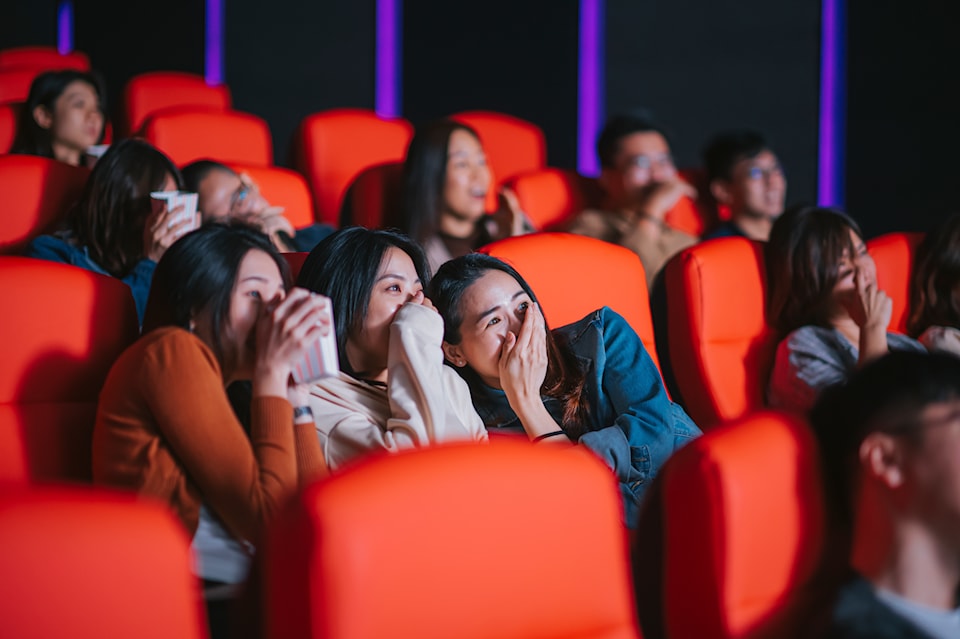The Western media industry has become reflective of how people perceive Asian experiences. Regardless, many Asians find they are still not taken seriously by the white majority.
Asian actors such as Simu Liu, best known as the first Asian superhero in the Marvel franchise, have made significant strides in Asian representation in mainstream media.
Despite this, actors like Liu still find themselves in situations where they need to reiterate that their “Asian-ness” is more than a trend.
Recently, a clip of Liu on the Canadian TV show Dragon’s Den went viral for the actor’s comments on Quebec-based company, Bobba, saying it was appropriating an Asian product.
This came after the white-owned company claimed to be disrupting the bubble tea market through their “invention” of bottled bubble tea and popping boba. According to an academic paper by New York-based food writer Jess Eng, the specific origin of bottled bubble tea and popping boba is unknown, but both came into existence organically within the bubble tea movement.
When asked about whether he would invest in the business, Liu said he did not want to uplift a business that profited off of his heritage.
“I want to be part of bringing boba to the masses, but not like this,” Liu said.
The Asian Canadian actor was only met with nervous laughs, with his predominantly white co-stars disagreeing with him while Liu could only smile awkwardly in response.
This experience shows how, despite how the public accepts Asian culture, it is seen as nothing but a commodity. People are uninterested in hearing the voices of the Asian minority who explain what aspects of their culture mean.
The study of “Orientalism” gives perspective to this level of ostentation within the media industry. Palestinian American academic Edward Said published a book in the 18th century detailing this theory.
According to Said’s book, Orientalism is a study that breaks down the Western world’s depiction of the Eastern world as inferior. Said said Orientals are the “subject race” who know they are inferior to the “dominant race”.
Said said white men often refer to themselves as representatives of the whole world. They do not speak for the so-called Oriental, as they speak another language and are therefore lesser than the world.
Min Joo Lee, an assistant professor for the Department of Asian Studies at Occidental College in Los Angeles, Calif., said Orientalism isn’t just racist hate, however.
Lee said people who consume these cultures and ideas do so with the lens of how they interpret these cultures instead of listening to locals who originated them.
“There are some people who like consuming Asian culture under the assumption that it makes them feel more cosmopolitan as opposed to just consuming domestic culture,” Lee said.
This idea is highlighted when looking at how mainstream media has treated Asian people and communities throughout the years. Comedians like Hasan Minhaj have had their experiences doubted by white people.
The New Yorker published a profile piece on the Indian American in September last year, accusing Minhaj of fabricating instances of racism he experienced in his Netflix special, Patriot Act.
Other writers from the magazine publisher, such as staff writer Jay Caspian Kang, stand by the statements made in the profile.
“This is totally different – it’s oppression fantasy and delegitimizes [reality],” Kang said on social media platform X.
Minhaj responded in The Hollywood Reporter article in October 2023, where the comedian said although there is a level of exaggeration that exists that all comedians do, his experiences with racism are true.
Many fans of Minhaj criticized the profile on social media platforms such as Reddit. One user going by CodWagnerian said the tone of the article “targeted” Minhaj.
“It feels like the whole ‘having to justify your actions and choices because you’re a person of color in the public eye,” the user said.
Minhaj said that his work is meant to bring the experiences of South Asians into perspective to the white masses. Regardless of further context, for white people to overly scrutinize a person of colour for speaking up about what they go through is demeaning.
To expect Asian experiences to be understandable from a white perspective is demeaning.
Unfortunately, there are other ways that the Asian minority is disregarded within the mainstream.
Tom Holland, known for his role as Marvel’s titular Spider-Man, went on a press tour in South Korea to promote his movie, Spider-Man: Homecoming in 2017.
One interview took place on the now defunct streaming service, VLIVE, with Korean singer and actor Eric Nam interviewing Holland and co-star Jacob Batalon.
While Nam was translating the interview to the live audience, Holland suddenly interrupted him out of nowhere.
“You speak great English, though, man. How did you learn English?” Holland said to which Nam simply replied saying that he was American.
Regardless of the further connotations of the situation, it puts into perspective the unconscious Eurocentric ideologies that exist within the white man.
In a world where the white man is always seen as the dominant majority, the oriental experience will always be observed through the lenses of the White man.
Speaking English, despite your identity coinciding with Korean culture, for example, enforces the bias of Asian-ness being a commodity according to the white majority.
Even though these challenges exist, it doesn’t mean that the accomplishments that have occurred within the present day should be snubbed. Those with a societal platform should always continue to utilize their power to uplift Asian experiences that may go unnoticed.
It’s only by challenging preconceived notions taught by the white majority, however, that real change can begin to happen.




